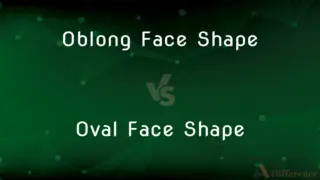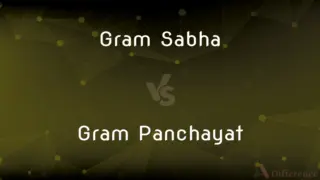Offer Letter vs. Employment Letter — What's the Difference?
Edited by Tayyaba Rehman — By Fiza Rafique — Published on December 19, 2023
An Offer Letter is an initial proposal outlining terms of potential employment, while an Employment Letter (or Employment Verification Letter) confirms an individual's current or past job status.

Difference Between Offer Letter and Employment Letter
Table of Contents
ADVERTISEMENT
Key Differences
An Offer Letter is typically the first formal communication between an employer and a candidate selected for a position. It details the terms under which the employment is being offered, including position, salary, and starting date. On the other hand, an Employment Letter serves as evidence of an individual's employment status, often detailing the duration, role, and sometimes compensation.
The Offer Letter is an instrumental document during the hiring process. It signals that the candidate has been chosen and presents the conditions of employment. The Employment Letter, conversely, is often used for post-hire scenarios such as when an employee is applying for a loan, a visa, or even when moving to a new job and the new employer needs verification of previous employment.
While the Offer Letter can be seen as a precursor to employment, it's worth noting that receiving one does not guarantee a job, as the candidate has the liberty to decline the offer. The Employment Letter, in contrast, deals with certainties—it verifies existing or past employment, providing validation of an individual's professional status.
Both documents play vital roles in the employment lifecycle. The Offer Letter sets the stage for a new professional relationship, outlining expectations and details of a proposed job. The Employment Letter, meanwhile, affirms the existence and specifics of such a relationship after it has been established.
Comparison Chart
Purpose
Proposes terms of employment
Confirms current/past employment status
ADVERTISEMENT
Issued When
After selection, before joining
During or after employment
Contents
Job role, salary, start date, conditions
Job role, duration of employment, sometimes salary
Binding
Not binding; candidate can decline
Generally factual and thus doesn't serve as a contract
Usage
Hiring process
Loan applications, visa processes, new job transitions
Compare with Definitions
Offer Letter
Offer Letters serve as precursors to official employment contracts.
Before signing his employment contract, Raj reviewed his Offer Letter thoroughly.
Employment Letter
An Employment Letter confirms an individual's employment status with an organization.
To process his visa, Ahmed provided an Employment Letter from his company.
Offer Letter
An Offer Letter is a formal document presenting a job proposal to a candidate.
After her final interview, Julia eagerly awaited her Offer Letter.
Employment Letter
Employment Letters serve as validation for an employee's role and tenure.
The bank asked Lisa for an Employment Letter to approve her home loan.
Offer Letter
The Offer Letter delineates the terms and conditions of potential employment.
The Offer Letter specified a starting salary and outlined the employee benefits.
Employment Letter
The Employment Letter often gets issued upon an employee's request for verification purposes.
Upon his landlord's request, Mike produced an Employment Letter to verify his stable job.
Offer Letter
An Offer Letter is extendable by an employer to their preferred candidate.
Receiving the Offer Letter from her dream company was a moment of joy for Monica.
Employment Letter
Employment Letters can be critical for transitions between jobs.
Before finalizing his new position, Sean's new employer requested an Employment Letter from his previous company.
Offer Letter
An Offer Letter sets forth the proposed specifics of a job role.
The Offer Letter detailed the responsibilities associated with the manager's position.
Employment Letter
An Employment Letter may sometimes state an individual's compensation details.
The Employment Letter Sarah received detailed her job title, tenure, and monthly salary.
Common Curiosities
What is the primary purpose of an Offer Letter?
It proposes terms of potential employment to a selected candidate.
Can an Employment Letter include salary details?
Yes, it can, but it depends on the employer's policy and the purpose of the letter.
When is an Employment Letter typically required?
When confirming an individual's current or past employment status, such as for loans or visa applications.
When is an Offer Letter usually given to a candidate?
After the selection process but before the candidate formally joins the company.
Why might a former employee need an Employment Letter?
For verification when transitioning to a new job or for other official purposes.
Is an Offer Letter legally binding?
No, it's a proposal, and the candidate can choose to accept or decline.
Does an Offer Letter guarantee employment?
No, it's an offer which the candidate can accept or decline.
Who issues the Employment Letter?
Typically, the HR department or employer upon the request of the employee.
Can the terms in the Offer Letter be negotiated?
Often, yes. Candidates can discuss and negotiate the proposed terms before accepting.
Is an Employment Letter the same as a reference letter?
No, while both verify employment, a reference letter also assesses an individual's performance.
Share Your Discovery

Previous Comparison
Oblong Face Shape vs. Oval Face Shape
Next Comparison
Gram Sabha vs. Gram PanchayatAuthor Spotlight
Written by
Fiza RafiqueFiza Rafique is a skilled content writer at AskDifference.com, where she meticulously refines and enhances written pieces. Drawing from her vast editorial expertise, Fiza ensures clarity, accuracy, and precision in every article. Passionate about language, she continually seeks to elevate the quality of content for readers worldwide.
Edited by
Tayyaba RehmanTayyaba Rehman is a distinguished writer, currently serving as a primary contributor to askdifference.com. As a researcher in semantics and etymology, Tayyaba's passion for the complexity of languages and their distinctions has found a perfect home on the platform. Tayyaba delves into the intricacies of language, distinguishing between commonly confused words and phrases, thereby providing clarity for readers worldwide.
















































